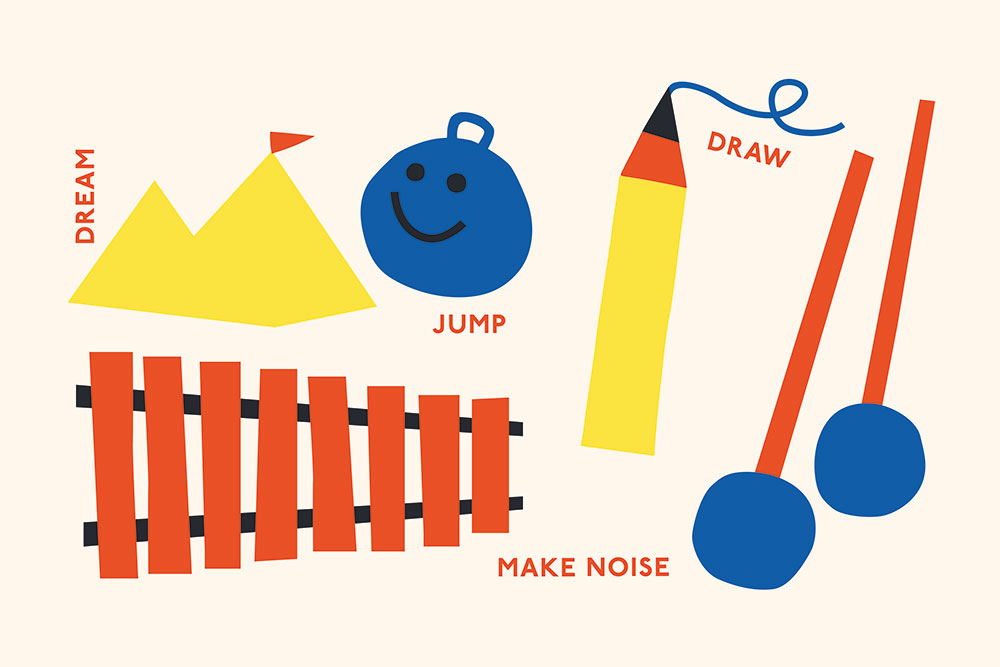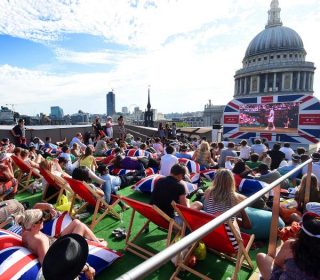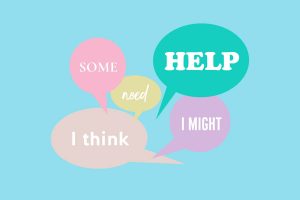Why is everyone talking about adult play?

What is it about Lego that we love, long after leaving childhood behind? How did Angry Birds capture our imaginations for what seems like forever?
Bonding with the kids or an excuse to disconnect from daily pressures, playing has become an activity that’s not just nice, but needed, if we are going to consider our wellbeing from the cradle to grave.
Psychiatrist Dr Stuart Brown, founder of the National Institute of Play, California, explains humans are the most ‘neotenous’ species, meaning we keep immature traits into adulthood.
‘No other creature retains youthful playfulness as long as we do,’ he says. ‘We are designed – actually hardwired – to play throughout our whole lives so when we don’t, our minds and bodies notice.’
Studies show that people who incorporate unstructured frivolity into their daily lives (be that doodling or throwing a ball for the dog) have improved brain function, lower levels of stress and are more overtly optimistic.
We know, too, that the absence of such activity can have serious negative consequences for our mental health. As Stuart puts it: ‘The opposite of play is not work, but depression.’
While the effects are certainly more profound if people are prevented from playing in childhood, play-deprived adults will also demonstrate social and emotional deterioration, becoming cranky, less engaged and more prone to rigid thinking.
Stuart has been studying play in adults for decades, but is pleased to have seen a growing body of scientific evidence corroborating his research, and more delighted still to see the number of companies that are now providing recreation rooms for their employees.
‘Corporate giants such as Google, Microsoft, Facebook and Linkedin took a lot of flack to begin with when they included slides, games and music rooms in their offices,’ he says, ‘but those guys weren’t just backing a gimmick. Sure they were doing it for their staff, but just as certainly they were doing it for their bottom line.
‘Play boosts creativity; if you want your team to innovate, make sure you provide facilities for them to let off steam at work. That’s how you’ll get the best from them.’
Take it from none other than Einstein, who reputedly said: ‘Play is the highest form of research.’ It’s no surprise, then, that Archimedes had his eureka moment splashing about in the bath and Newton when lounging under a tree.
PURPOSELESS PURSUITS
In an ideal world, says Stuart, the work-play differential would cease to exist. ‘I would encourage people to approach life as an integrative process, incorporating play seamlessly into their daily activities – and that includes work,’ he says. This is entirely possible, play takes many different forms – as individual as all our tastes and predilections – with endless opportunities to indulge. You may not have crazy golf at work, but you will have colleagues to share a joke with, or a notepad to doodle on.
The great thing about play is it can be any activity, says Stuart, as long as it ‘offers a sense of engagement and pleasure, takes you out of yourself and away from a sense of time and place, is voluntary and is apparently purposeless, so the experience is more important than the outcome.’
Having said that, many people obviously want more than scribbling doodles because they’re actively trying to recreate other activities from their childhoods – including playing with toys.
According to market research company The NPD Group, the £300million UK ‘kidult’ toy market is growing three times faster than the sector overall, with one in every 11 toys now being bought by an adult for him or herself – up 65% since 2012.
Beyond that, our hunger for uninhibited frivolity is driving a burgeoning ‘adultescent’ industry, with an increasing number of venues and attractions promising to help us satiate and quieten the clamour of our inner child.
NO ONE WAY TO PLAY
From cafés offering papier maché monster- making classes to regression sessions at nightclubs – where ravers literally drop the acid in favour of bouncing around on space hoppers – opportunities for adults to play abound, not only in this country, but right throughout Europe, the US and Asia.
Wacky World, the UK’s biggest inflatable activity centre, has been touring the country since February, with its adult-only sessions selling out in city after city; Ballie Ballerson, where adults rollick around in a giant ball pit while a DJ mixes the tracks, will soon be opening a million-ball venue – and is urging people to get on its waiting list now – and adults-only ‘The Beast’, allegedly the largest bouncy castle in the world, had people jumping for joy throughout the summer.
PLAYING THE MARKET
Meanwhile colouring books for adults continue to top the bestseller lists: Johanna Basford’s Secret Garden sold three million copies in China within three months of going on sale and over in the US, Camp Grounded and Camp No Counselors run adult summer camps for adults who spend their days drawing, building Lego and going on scavenger hunts. At night, they’re tucked up in dormitory bunk beds.
And then there’s Preschool Mastermind, which takes people back to their four-year-old selves and all the associated activities, including finger painting and, says the website, ‘much-forgotten ABCs’.
Not all of this will work for you of course, to help you identify what type of play would most benefit you, think back to your childhood. Did you enjoy running around and climbing? Then try a trampoline park or ball pit. Or were you happiest when reading and colouring? Join an arts and crafts workshop.
The most important thing is that you find a way to bring joy and play into your life, just like it used to be. Do it. Do it today. You can get away with it legitimately, it’s what the doctor ordered.
FIND YOUR BALANCE: Holidays are coming – it’s time to have fun
1. FUN HUNTER: THATMuse (it stands for Treasure Hunt At The Museum) offers precisely that at the V&A and the British Museum. Charge around the galleries against the clock to find artefacts. Accept challenges to boost your score. It’s an absolute hoot.
2. JUMP TO IT: Wouldn’t life be great if each time we fell, we bounced back up again? Well you can at Oxygen Freejumping. Leap, twist, turn, tumble, land… and repeat on more than 150
connected trampolines.
3. BALL PITS AND TECHNO: The best way to rave is on… a space hopper. Regression sessions combine the fun of your childhood parties – ball pits, face painting, magicians – with classic house, garage and hip hop. It’s almost everything you could want on a dance floor.
4. IT’S HIP TO HAVE HOBBIES: Yes, yes, we know you love a box set, but there really are other things to do with your time. At Drink, Shop, Do, you can learn how to dance jazz, make paper cut-outs, design your own tattoos and more.
5. GAME ON: Give your local’s dusty chess set with half the pieces a miss and head down to Draughts. The café has a library of more than 600 board games and employs a game guru to help you choose. There are craft beers and food, too.








